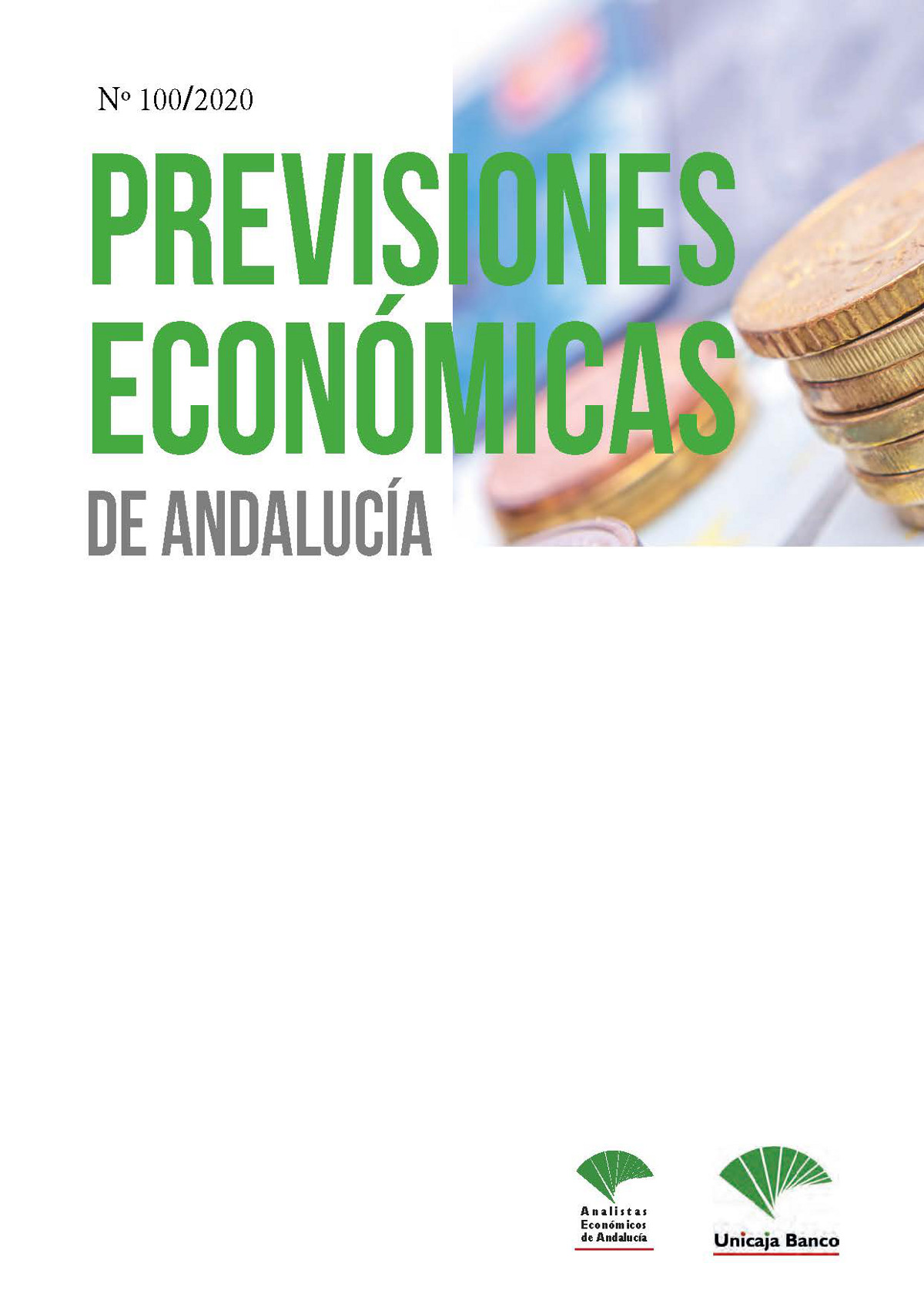Unicaja Banco has published the issue number 100 of the quarterly report 'Previsiones Económicas de Andalucía' (Economic Forecasts for Andalusia), prepared, as in previous editions, by Analistas Económicos de Andalucía (research company of Grupo Unicaja).
This report is divided into three sections: 1) Economic environment; 2) Recent evolution of the Andalusian economy; and 3) Economic outlook for Andalusia 2020-2021. The first section describes the international and national context. The second section analyses the situation of the Andalusian economy, paying attention to the behavior of the main indicators and productive sectors. Finally, the last section includes outlooks on the forecasts on the evolution of the Gross Domestic Product (GDP) and employment in Andalusia for 2020 and 2021.
The report also includes four charts which analyze topics of special relevance currently for the Andalusian economy and society, such as the measures adopted by the central banks, the European Union, the Spanish Government and the Junta de Andalucía to mitigate the effects of the coronavirus health crisis, as well as the situation and perspectives of the Andalusian region towards sustainable development.
On the occasion of the 25th anniversary of the establishment of Analistas Económicos de Andalucía, a monograph on the main changes in the Andalusian economy during this period has been included.
The report highlights the following:
Economic Environment
After the turn of the year, the global economy showed a trend of moderated growth. This pattern has been abruptly interrupted due to the Covid-19 outbreak, which has caused an unprecedented healthcare crisis, with a high cost. The necessary efforts to contain the pandemic have made governments to take extraordinary measures, unprecedented in the recent history (limitation of movement, partial –and even total- shutdown of the productive activity), with a strong impact on production and employment. In this sense, the latest IMF projections suggest that the world GDP could fall by 3.0% in 2020, although a higher impact cannot be ruled out. Recession will be general, with a higher GDP decrease in advanced economies, especially in the Euro Zone.
In the specific case of the Spanish economy, the IMF indicates that it could register an output contraction of 8.0%, and unemployment rate could reach 20.8%.
The results preview of the Quarterly National Accounts for the first quarter of the year, published by the National Statistics Institute (INE), records a 5.2% fall with respect to the previous quarter. Year-on-year, the decrease has been 4.1%. All the productive sectors post falls, especially construction and services, with -9.7% in trade, transport and accommodation and restaurants.
Recent evolution of the Andalusian economy
The data from the Regional Accounts, related to the fourth quarter of 2019, showed a maintenance of the expansionary profile of the Andalusian economy, although with moderated rates. This trend has also been abruptly interrupted by the Covid-19. In particular, in the last quarter of 2019 the GDP recorded a year-on-year growth of 1.9%, underpinned, on the demand side, by the growth in investment and consumption and by the increased activity in exports, and, on the supply side, underpinned by the increased activity in construction and services.
Therefore, in 2019, the GDP growth would have reached 2.1% (2.3% in 2018), based on the internal demand, although with a slowdown in the growth rate of its components, mainly investment, and on the positive contribution of the external sector, given the higher growth of exports. In this sense, the good results of tourism would have impacted on the evolution of exports of services.
For the first quarter of 2020, according to the Quarterly Regional Accounts, the Andalusian economy recorded a variation of -4.3% with respect to the same quarter of the previous year, with a quarter-on-quarter variation of -5.4%.
Tourism is one of the most affected sectors by the Covid-19 crisis, and therefore it has affected the labour market. According to the figures of the Labour Force Survey, in the first quarter of the year, the number of persons in work is down by 28,900 people with regard to the previous quarter, due to the fall in construction and services, especially in the later sector (44,300 employees less). However, the figures should be interpreted with caution, as the number of persons in work at the end of the quarter which did not work, due to partial shutdown for technical or economic reasons (48,000), and those who had been furloughed (25,700) should be taken into account. Additionally, the number of Social Security contributors in March also reflects a decrease close to 194,000 compared to February.
Economic Outlook for Andalusia 2020-2021
Considering certain hypothesis regarding the duration of the lockdown period and of the ‘de-escalation’ process, Analistas Económicos de Andalucía estimates that, in the whole 2020, the Andalusian GDP may fall between 8.4 and 11.5%.
A significant impact on the employment is also expected, which could fall by 8% in the year average, with a decrease of 240,000 people in work. This way, the unemployment rate would stand at 27.3% (21.2% in the 2019 average), although it could be over 29% if the ‘back to normal’ extends until the end of the year.
For 2021, the first estimates indicate that both output and employment would rise. The Andalusian economy could grow, in the whole year, by 5.6 to 8.1%. Furthermore, a growth of 5.0% in employment is expected for the year average, what would bring the unemployment rate down to 23.7%, although it could remain over 25% if the reactivation of the economy takes longer than expected.
Descarga el informe completo de 'Previsiones Económicas de Andalucía (nº 100/2020)



